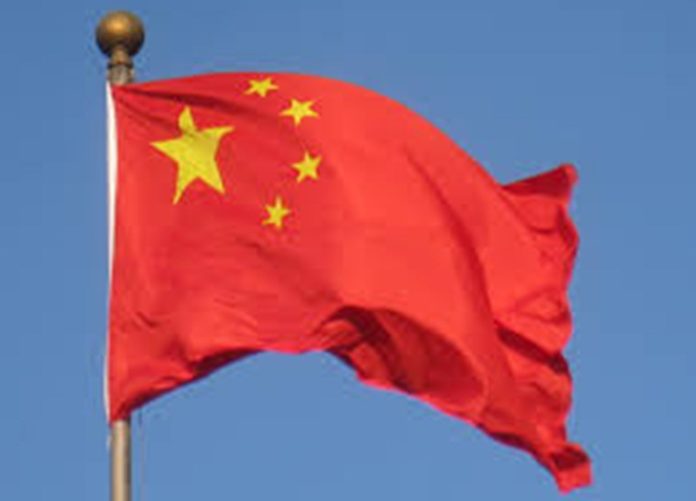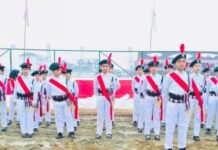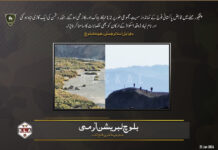(COLUMN by Ghulam O Yaghma, President of East Turkistan Government in Exile)
Uyghurs in East Turkistan and the Chinese government have always had a relationship of colonialism and anti-colonialism. East Turkistan, a historically independent nation, was first conquered by the Qing Empire in 1759. However, this was not colonialization in the usual sense, but one characterized by colonial governance from inside military garrisons.
For the Qing colonial army was not fully confident in colonial governance for fear of massive threats as it was sporadically subject to local resistance movements. During this time, the Qing colonialism inside garrisons was overthrown by local people many times, until it was replaced by the Government of Yettishar in East Turkistan in 1865, otherwise called Kashgaria, under the leadership of Yakub Beg.
After 14 years of Kashgaria rule, in 1879, East Turkistan was once again attacked and reoccupied by the Qing Empire and turned into a new province called Xinjiang, translating to “A New Frontier”. The Qing Empire was defeated in 1911, and the Republic of China was established. In Sun Yatsen’s nation-building guidance, Uyghur’s were not a part of the five key nationalities of the new republic because they did not consider East Turkistan as part of it.
After Sun Yatsen, Chinese militarists, in a bid to politically inherit what was left after the Qing Empire, governed East Turkistan, with strategic support from the former Soviet Union and the Kuomintang Party which was interrupted twice with the establishment of two East Turkistan Republics in 1933 and 1944, respectively. Up until the annexation of East Turkistan by the People’s Liberation Army in 1949, the Chinese governance of East Turkistan had been largely symbolic with no significant colonial confidence and competence.
Neither the Qing Empire nor Chinese militarist governments in East Turkistan were able to facilitate a significant influx of Han Chinese from China into East Turkistan. According to a report from Amnesty International, the population of Han Chinese in East Turkistan prior to its annexation by the Chinese Communist armies in 1949 only comprised 2% of its total population. This 2% was mainly government officials, army personnel, police officers and their families. There were no Chinese farmers or shepherds who settled in East Turkistan at that point in time.
There has been a pattern in China’s further suppression of Uyghurs after every occasion of colonialism was successful, China has carried out two types of genocide against the people of East Turkistan in order to prevent them from building up resistance movements. These were the genocide against the people of East Turkistan with the deliberate aim of reducing their numbers and the genocide of intellectuals and prominent public figures, including descendants of aristocratic and royal families who had the potential to organize and lead locals in resistance movements because of their ancestral legitimacy.
It was reported that after the second colonialization of East Turkistan in 1878, every Uyghur family in East Turkistan lost at least one male member and large families lost up to three male members to systematic genocide aiming to prevent population growth and to instill deep fear in their minds. Aside from the high number of deaths caused by wars between the local people of East Turkistan and colonial forces, genocide was used as a deliberate policy to achieve these goals. This genocidal policy specifically targeted intellectuals, businesspeople, and heads of Uyghur cities and villages.
The Communist regime in East Turkistan is not a stranger to the oppressive and genocidal policies of the regimes that came before it, they continue to implement the same policies in addition to assisting and encouraging the settlement of Han Chinese in East Turkistan. This deliberate and state-sponsored policy has brought about a massive change in the demographic structure of East Turkistan.
In the long term, China has aimed to increase the population of Han Chinese while decreasing the population of Uyghurs in the region, turning the Uyghurs into a minority in their own homeland. This has been perpetrated historically in the name of fighting against local nationalism in the 1950s, against revisionists and bourgeoisies during the Cultural Revolution, against separatists in 1980s and 1990s. Most recently since 9/11, the oppression and genocide have been branded as the fight against terrorism.
The elimination of Uyghurs had been a long-term policy and a progressive process for the Chinese regime. However, it became a more pressing issue as the political and economic necessity to expand into the Central Asia as part of its historical ambition to rule the whole world grew. To start expanding into Central Asia, the CCP had to eliminate any internal factors that could jeopardize its plans which meant permanently eliminating East Turkistan as a potential risk by implementing radical policies to assimilate or eliminate the Uyghur population.
These radical policies started with the gradual elimination of the Uyghur language at all levels of education in 2000. The next level of elimination was physical elimination through various methods such as deliberately spreading life-threatening drugs or incurable diseases among the Uyghur population. Furthermore, China has implemented policies to prevent Uyghurs from having kids and have even transferred Uyghur girls to inner China under the pretext of employment opportunities.
The Chinese government has perpetrated and staged terrorist attacks to blame and arrest innocent Uyghur men only to torture and kill them inside prisons. These suppressive policies continued until 2017 when Chinese authorities established a network of Nazi-style concentration camps where murder, deliberate retardation of intelligence, organ harvesting, and brainwashing are a norm. This tore families apart and left children orphaned, who were then indoctrinated and Sinicized in boarding schools, orphanages, and other institutions.
Several genocide survivors, who fled to Kazakhstan as Kazakh citizens, revealed that these camps are crueler and more inhumane than Nazi concentration camps. There were also reports of food given in prisons and concentration camps containing mysterious chemicals that cause mental retardation in those who consume it. These chemicals turn people into zombie-like creatures that are nothing more than slaves.
It is difficult to guess the levels of oppression that the people of East Turkistan face today because we live in an era where, in the West aside from the discussion of human rights even the issue of animal rights is a topic of debate in parliaments. We live in a world where the atrocities of Nazis against the Jewish people during WWII are displayed in Holocaust museums to warn humanity not to repeat the same mistake ever again. Amid our collective memory of the Holocaust, genocide against Uyghurs is being carried out before our very eyes.
Previously, people could absolve themselves of their responsibility to stop the Holocaust by saying that they did not know that it was happening. However, the Uyghur genocide is different—nobody could consciously say that they do not know what tragedy is befalling the Uyghurs in East Turkistan. Elders, youth, and kids, none of them are spared from China’s cruelty.
We can anticipate that if the free world watches the tragedy befalling Uyghurs, Kazakhs, and others in East Turkistan, the same tragedy can very well befall others because China’s ambition for world dominance is built right into their DNA. For China, there is no difference between Uyghurs and non-Uyghurs—whoever stands in its way of global dominance will be eliminated. If you are silent about this genocide today, there will nobody left to defend you tomorrow.
It is still difficult to convince many people in the West of what is truly happening in East Turkistan. China is more authoritarian than many other dictatorships, and the oppression mechanism it utilizes has uniquely been successful to indoctrinate its people to take suffering as pleasure. Moreover, it is a perfectly insular state that no foreign journalists can penetrate its inner circles. Therefore, any crime that China commits, big or small, is hidden from the world.
As Chinese people are ruled by the internalization of fear, it is hard to expect them to tell the truth to the outside world, even if they are completely alone. In the case of Uyghurs, each house is closely monitored which instills fear in the people and forces them watch every little thing they say even around their family members.
This unprecedented repression mechanism is created by a dystopian regime that humanity has never heard of or seen before to the point that it is impossible to convince someone that a regime like this exists today. An intellectual once said “if you are going to oppress others, then oppress them in such an excessive way that the victim is unable to make others believe in their suffering.” This is exactly what Chinese authorities are doing to Uyghurs in East Turkistan.
The world must not be silent over the unspeakable tragedies that Uyghurs are facing in East Turkistan. To recognize that East Turkistan is a nation occupied by China is the first crucial step to stop China from continuing to perpetrate this genocide. The issue of East Turkistan is not just an internal affair within China nor will it ever be. We will not stand by and watch this genocide take place in the modern era.
The perpetrators must be severely punished, and justice must be served. Only then can we brag about the strides we have made in universal human rights. When you fight for the rights of animals who are protected by legislation, please do not forget about the people of East Turkistan who have less rights than those animals.








